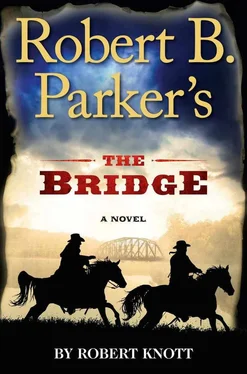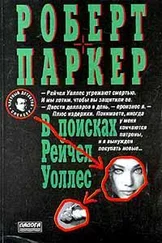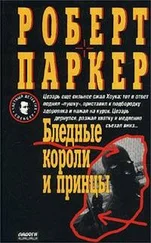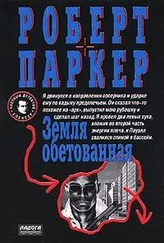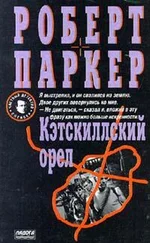“When?”
“Subsequently,” Virgil said.
“I’ll go with you,” Cox said.
“Not necessary,” Virgil said.
“Might not be,” Cox said, “but I insist.”
“Conditions are bad,” I said.
“Yes,” Cox said. “They are. No matter. I have a great deal invested in these men and this bridge.”
Cox walked to the office doors and opened them.
“Jessup,” Cox called.
“Yessir,” Jessup replied.
“Get my horse ready to ride,” he said.
Jessup showed up at the doors.
“Now?” Jessup said.
“Yes,” Cox said. “Now.”
Virgil looked to me and moved toward the door.
“We have readying to do,” Virgil said. “We’ll come back around here in a bit. If you’re ready to ride, you can ride with us. We won’t wait on you.”
“I’ll be ready,” Cox said.
Virgil nodded and I followed him out of the office.
We left Cox’s place and walked back in the direction of the sheriff’s office.
“Think we need to try locate this Swickey fella,” I said.
“Yep.”
“Not sure how best to go about that,” I said. “Not this time of night, anyway.”
“Same as before,” Virgil said.
“Wallis?”
“Yep.”
Virgil and I cut through the alley and crossed two blocks to Main Street. When we got to the Boston House, the saloon was locked up.
“Any idea where Wallis could be,” Virgil asked.
“Don’t,” I said. “Not if he ain’t at the saloon.”
“Know where Tilda stays,” I said.
“How do you know that?” Virgil said.
“She showed me.”
Virgil looked at me, but I didn’t look at him back as I walked on.
“She’s just up the street here at Fletcher’s old boardinghouse,” I said.
When we got to Fletcher’s we entered the small dark lobby and climbed the steps to the second floor. The boardinghouse halls were lined with a few dimmed sconces. We walked down the cold hall, stopped at the last door and I knocked.
“Tilda,” I said. “It’s Everett and Virgil, sorry for the hour, but we need to ask you something.”
We heard some bedsprings squeak and the sound of hushed voices. I knocked lightly again.
“Tilda?”
After a moment, Tilda cracked open the door.
“Hi,” Tilda said shyly.
“Sorry to bother you this time of night, but we’re looking for Wallis,” I said. “Need to find out something from him. Know where we can find him?”
“Hold on a minute,” Tilda said, and shut the door.
Virgil looked at me and frowned a bit.
After a moment, the door opened and Wallis stepped out with his breeches on over his unders. His hair was sticking out in every direction. He closed the door behind him.
“Bernice threw me out,” Wallis said, like a kid with his hand in the cookies. “Tilda’s just letting me stay with her for a while, till Bernice lets me back in or I have to relocate.”
“It’s okay, Wallis,” Virgil said. “We ain’t here to arrest you.”
Wallis looked relieved.
“What ya need this time of night?” Wallis said.
“Swickey,” Virgil said.
“What about him?”
“Know him?” I said.
“Walton Wayne,” Wallis said. “Sure do.”
“Where is he?” I said.
“Don’t know that he’s here,” Wallis said. “He don’t live here. He stays here some, though, always at the Boston House, but I’ve not seen him, not lately, anyway.”
“Where’s he live?”
“Across the Blanco,” Wallis said. “He has a big spread over there, I hear. He owns damn near all the land on the other side.”
Virgil looked at me and shook his head a little.
“What do you know about the Rio Blanco contract that was awarded to Cox and not Swickey?” Virgil said.
“Not much,” Wallis said. “Cox and him I know were on opposite sides. Swickey is rich as hell and could buy damn near anything or anybody, but he didn’t win the contract. Cox, I hear, had the construction experience. That’s all I know.”
Virgil nodded a little as he thought.
“Appreciate it, Wallis,” Virgil said. “Sorry to interrupt.”
“Oh,” Wallis said, “no problem, you didn’t interrupt nothin’.”
“Don’t think I’d call Tilda nothing,” Virgil said.
Virgil and I collected G. W. Cox. We started for the Rio Blanco Bridge just past three in the morning. The snow was falling steady as we rode and it was beginning to stick.
Cox was dressed for the weather. He had on a fur-lined cap that covered his ears, thick mittens, and a buffalo-hide coat that draped down to the fenders of his saddle. He rode a big black sturdy-looking horse that had an oilcloth drape covering his neck and ass end.
We rode by the depot, crossed over the tracks, past the last few homesteads on the road, past the icehouse, the old stockyards, and the abandoned slaughterhouse, past the trash heap. Soon we were out of Appaloosa proper.
We kept our heads down and our collars up and didn’t talk much on the journey. The ride was slow going, and by the time daybreak came upon us, the snow was near a half-foot deep.
“Could we stop for a moment’s time,” Cox said. “I’m not used to being in the saddle this long.”
We stopped under a large cluster of oak trees to give our horses some rest. I got some kindling from the mule’s panniers, gathered what dry branches I could, and got a fire going next to a large felled tree. Once the fire was burning steady I put on some coffee to boil.
Virgil removed the snow from the big tree and sat over the fire, warming his hands. Cox removed a rolled slicker from his cantle. He placed it on the ground on the opposite side of the fire and sat on it with his boots close to the flame.
When the coffee was brewed I poured Virgil and Cox a cup and handed it to them with a piece of hardtack.
I pulled my watch from my vest pocket and checked the time.
“Should be to the bridge camp by a little after noon, I figure.”
Virgil nodded, holding his hands around the warm tin cup as he sipped his coffee. Cox just stared at the fire.
“Unless it’s a damn sight clearer when we get there,” I said, “it’ll be hard to see much with this weather.”
Virgil looked up.
“It will,” Virgil said. “Weather’s made itself more than comfortable.”
“Damn sure has,” I said. “Imagine it’s just as bad at the bridge.”
“There is no bridge,” Cox said solemnly.
I looked to Cox. He was still staring at the fire.
“No,” I said.
Virgil nodded and sipped his coffee. Cox remained staring at the fire.
“River’s deep and wide,” Virgil said.
“That it is,” Cox said.
“Deep gorge,” Virgil said.
“That, too,” Cox said. “This was to be a major accomplishment. The bridge was over two hundred feet long.”
Virgil nodded a little and sipped on his coffee.
“This Swickey fella,” Virgil said. “You know anything about his spread? His operation on the other side of the river?”
Cox met Virgil’s eye.
“I don’t,” Cox said.
“It was shared with us,” Virgil said, “he owns damn near everything on the other side of the bridge.”
“I heard he was a cattleman,” Cox said. “At least I heard that is how he attained his wealth, but as I said, I know nothing of his life and how he leads it or where he leads it.”
Virgil just looked at Cox and didn’t say anything else.
It was real quiet out with the snow falling gently.
Our horses and the mule stood stock still with their heads down. Nothing was moving, no birds, no breeze.
The only sound was the quiet crackle of the fire burning under the grate the coffee pot was sitting on.
Читать дальше
